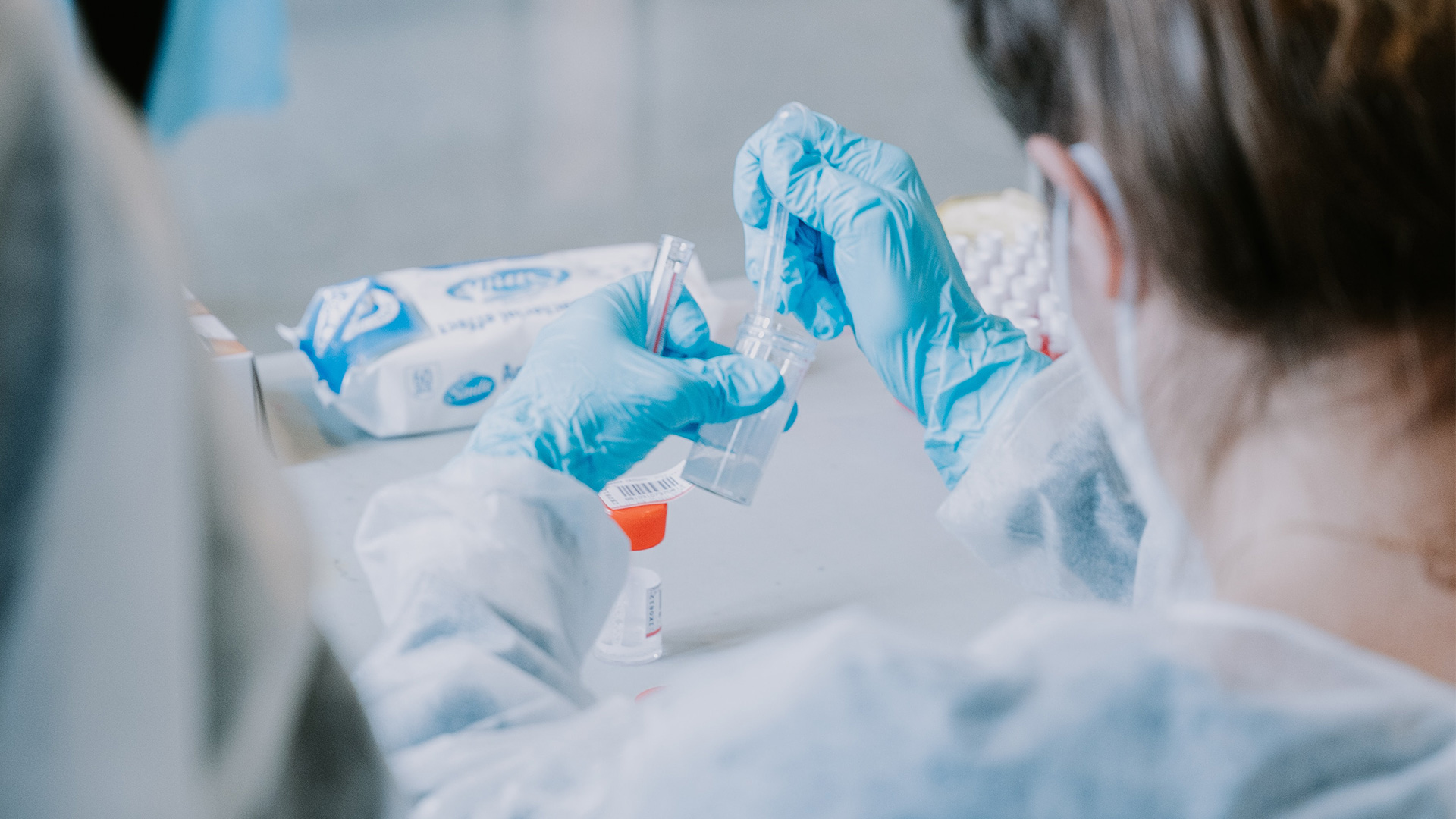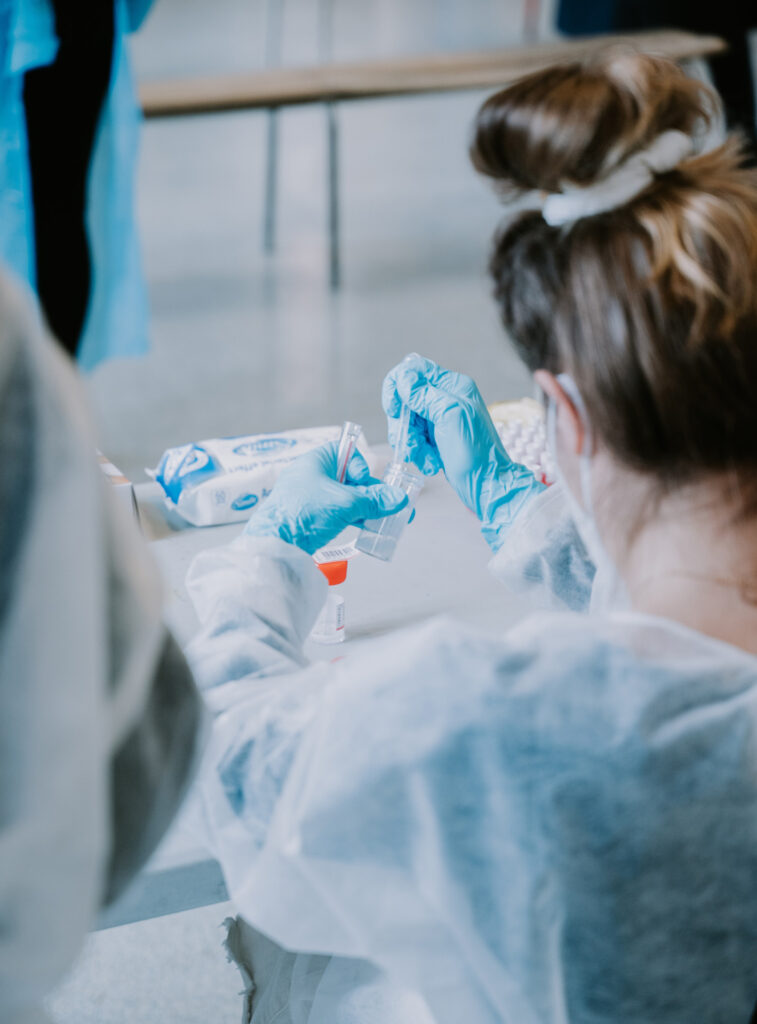I’ve worked as a doctor longer with Covid-19 than without. At the end of my two years of foundation training I feel… exhausted, disillusioned, numb and incredibly strange about work. Separating what is and isn’t attributed to the pandemic is tough. Would I feel similarly if the world had carried on turning, without the greatest health crisis in living memory? Are the reasons I struggle with medicine actually far deeper than the pandemic? I’m still figuring out what sort of doctor I want to be, where my place is in medicine or if at all.
I’ve mostly ignored my feelings about work in conjunction with the pandemic, because I fear that otherwise I wouldn’t get out of bed. Corona took away any lightness and made an already fractured system break further. Exhaustion and burnout were already epidemic in our profession, for reasons complex and granular. They are deeply embedded. Our human army struggles to keep up with an ever growing and ageing population, increased health demands and greater expectations that we can always provide world class care. We haven’t had enough staff and resources to do our job to the expected standard for a long time. The maddening red tape and bureaucracy contributes to a constant background of frustration. All of this adds to moral injury, weariness and breakdown.
Our workforce is full of good people – the carers and high achievers. The passionate, diligent and conscientious. We don’t always know how or when to stop. We put work and patients first and can’t always see when we are suffering, nor is there time to press pause and consider our options. The expectation is to carry on; if you can’t cope you are seen as weak. We’ve created a work culture where personal health and wellbeing is ignored, whilst being gas-lit by a system that takes away our resources then blames its workers if things go wrong. And when things go wrong in healthcare, the effect can be catastrophic.
People think it’s the big stuff that gets to you as a doctor, the awful deaths and buckets of blood pouring out on the floor. It can be, but mostly it’s the small petty cruelties that build up incrementally. Like the boiling frog metaphor, they can be so insidious; we barely notice the emotional impact. It just becomes the norm.
The pandemic has been a drawn-out affair, lasting far longer than anyone predicted. When we are called to arms in a crisis, we have a surge of adrenaline that allows us to firefight. But we rely on these instances to be short and sharp. With Covid, the crisis has been chronic, our reserves are depleted and we are dragging ourselves through fatigued.
When everyone was clapping for carers, strangely that’s when we were at our quietest. The general public naturally moved on. Our spotlight fell as admissions continued to rise. The second and third lockdowns were a tsunami. Covid was rife, people no longer feared coming to hospital. Initially we had a blissful few months of empty beds. The hospital used solely for its correct purpose, none of the nonsense or malingering. Sadly there were people who really needed us and didn’t come, who stayed home with heart attacks and strokes. After the summer every ailment came through the A&E waiting room, every mental health crisis and all those who couldn’t get through to their GP. All things minor and major, the Accidents and Emergencies and the Anything and Everything.
Last August I moved to a new hospital riddled with poor staffing and systemic issues. The size of the hospital disproportionate to the patients it served. It was a notoriously difficult place to work, so it’s likely I would have finished my training year similarly embittered without the pandemic, Covid only exacerbated it all.
Again, it’s the small stuff that makes work unbearable. The masks – hot, suffocating and giving us all bouts of acne. Don’t even get me started on the goggles. I’m tired of the bad science. The generic masks are fluid resistant; the goggles are designed to prevent blood splashing on you in theatre. I’m yet to see conclusive evidence that they offer significant protection to airborne viruses. PPE has long been political. I’d love to see study on the long term carcinogenic effects of constantly breathing in fibrous particles, but sadly this seems less important than government officials paying millions to inadequate PPE providers.
One of the worst aspects was the staff shortages. Track and Trace and self-isolation depleted us. In November I worked with only 25% of our doctors remaining. For those of us who were asymptomatic, why the hospital couldn’t provide us with lateral flow or PCR tests at the time is beyond me. How to describe what working in that sort of pressure is like? I carried multiple bleeps, blaring constantly, pulling me from pillar to post across many wards of the hospital. You cannot run or think fast enough.
I was left to handle medicine greater than my years of experience accounted for, frequently making decisions about which critically ill patient to attend to first. Often alone, often unsupported. When the horror, reality and frustration of the pandemic become your normal, what does that do to you as a person? When you actually see decisions over who gets the ventilator. When your registrar won’t come help you with a dying patient because they’re stuck in ICU. You inevitably crash and burn.
I called the Samaritans sometime in the winter, paralysed by feelings of incompetence, exhausted through lack of sleep. ‘You are not superwoman’ she told me. I developed an outer toughness, inside I twisted in pain. Often when the pain had nowhere to go it turned into flashbacks. Miscarried babies. The grey faces of the dying. There was rarely space to debrief the big stuff, few people talk about how medicine makes you feel.
Recently I fainted in theatre, overworked and dehydrated, my third c-section at the tail end of a 12 hour shift on top of a day of endless demands and bleeps. If you overload a system, it will shut down. The shift work, long hours, emotional and physical labour all takes its toll. There is only so much a human being can take.
There were perverse times when I enjoyed the madness, high on adrenaline, problem solving and firefighting. Cypress Hill’s ‘Insane In The Brain’ echoed round my head as I bounced through A&E. There’s certainly a lot to be said for purpose and challenge. I relished the learning and I loved that feeling of helping people. There were moments of true connection, when I really felt like I made a difference. There’s no feeling like it and it’s the profoundness of this job is what keeps me coming back.
There were times I barely saw daylight. I had no concept of the weather until I scraped the snow off my car at the end of another shift. I felt strange relief during the third lockdown, knowing I had no time or energy for a social life. Glad that my only requirements were to get up and go to work.
I felt envious of those who were furloughed. I’d have loved time for rest and self-reflection, an opportunity to pursue a craft or skill. But I’m thankful I’ve not had to deal with the claustrophobia of the same four walls. I don’t do well with stagnation. I need stimulation and drive. However, when you’re overworked it then goes the other way. You lose your compassion, your direction, your sense of self, your happiness.
It’s difficult to give an accurate representation of working in healthcare during this time. To anyone outside, I’m always greeted with shock, awe and gratitude. It’s difficult to weigh if this response is warranted. My work has become my norm, yet so often feels abnormal. In a global crisis what other choice did I have other than to keep going? I have no idea what it’s been like to work in any other industry during a pandemic. Has it been better? Less exhausting? More fruitful? Or just more anxiety, instability and frustration? At times I’ve actively hated working in healthcare. It’s been relentless, grim and gruelling. But who am I to moan? It is a privilege to work as a doctor, and I know everyone worldwide has suffered in their own unique way during this pandemic. What I don’t want is to exist in a vacuum and I know I’m not the only one struggling. We need acknowledgment amongst the profession that the way we work is unsustainable and damaging, and these issues pre-date the pandemic. We also need commitment to change this.
In the coming weeks I’m making some pivotal alterations to the way I work – less hours, more routine and in a new specialty I hope I’ll love. Recovery from the pandemic is a huge factor in this. I’ve promised myself I’ll never work in this way again. I need ways I can manage my job and stay well and connected outside work because it does affect your health, wellbeing and relationships. I’m constantly dealing with the guilt of letting my loved ones down, of becoming a person I don’t like – stressed and snappy. I need medicine to not be all-consuming. I need to come up for air.
I fear healthcare will forever be tarnished by the pandemic, that masks are here to stay and teaching will forever be on zoom. So many of us have been forced to work in a way that’s far from normal or healthy, and it certainly isn’t getting any easier. You are not financially compensated for the intensity or demand, nor the required skill and responsibility. There are many other jobs out there with better pay and less work. I’m sure there are many of us who question whether we want this anymore, if the fleeting moments of profundity are enough. Maybe we would find more joy and happiness in leaving the profession, because we don’t know if we have much left to give.
Words by Imogen Bicknell: http://www.mentalscale.com/

